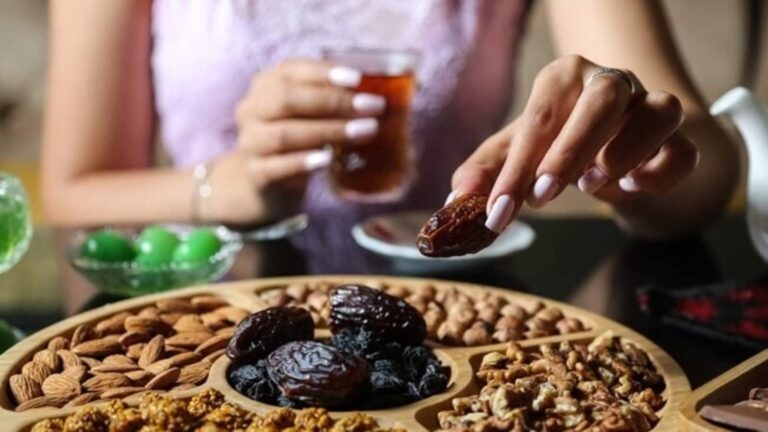The holy month of Ramadan begins in a few days, ushering in a time of spiritual reflection, self-discipline, fasting and devotion for Muslims around the world. Fasting during Ramadan has many benefits, as it gives the digestive system the necessary rest, prevents metabolic disorders, detoxifies the body, and helps lower blood pressure and cholesterol levels. However, if diabetics fast during Ramadan, they must carefully implement the necessary dietary and lifestyle changes to prevent blood sugar spikes and the risk of complications. Hypoglycemia, or low blood sugar levels, is one of the health risks that fasting without food or water can pose to diabetics. (Also read | Ramadan 2024: When does Ramzan start? Check date, time and iftar details)
It is important to have a balanced diet, incorporating all food groups, for both suhoor and iftar. It is important to stay hydrated during non-fasting periods to ensure all body functions function properly. If you experience any signs of dizziness, blurred vision, or irregular heartbeat, stop your fast immediately and consult your doctor. Stay active during the day and get plenty of rest at night to stay healthy.
During the month of Ramadan, Muslims fast for 30 days. Fasting can last for more than 15 hours each day. Diabetics must effectively manage their condition during this period to ensure a safe and risk-free Ramadan.
Here are some tips from Dr. Apoorva Garg of BeatO Care (Operations) to help you manage diabetes during Ramadan fasting.
Risks during Ramadan fasting
Dr. Garg talks about diabetic complications that can occur with prolonged food and water fasting.
Hypoglycemia: A state in which blood sugar levels fall below the normal range due to fasting. It can occur in both diabetics and non-diabetics due to a lack of glucose in the blood during fasting.
Hyperglycemia: A condition in which blood sugar levels exceed the normal range. People with diabetes are at risk of experiencing high blood sugar during Ramadan. This may be due to increased hepatic glucose production due to dysregulation of normal circadian hormonal patterns.
Diabetic ketoacidosis: When a person with diabetes cannot get glucose from food for energy, their body begins to break down fat instead. This breakdown of fat produces chemicals called ketones. Too many ketone bodies in the blood can make the blood acidic, leading to a dangerous condition called diabetic ketoacidosis. Due to its high acidity, it can cause serious problems if not treated immediately.
best foods for fasting
Suhoor (pre-dawn meal): Eating a balanced meal before dawn is important to maintain energy levels throughout the day. Fish, poultry, low-fat dairy products such as yogurt, fresh fruits and vegetables, and whole grains such as rice and whole-wheat bread are good options.
Iftar (meal after fasting): Eating after sunset should be filling without weighing you down. Choose foods that contain carbohydrates, vitamins, minerals, and fiber. Baking or grilling your food uses less oil and is better than frying. It may be better to wait a little while before eating sweets or desserts right after breaking your fast.
Tips for managing diabetes during Ramadan fasting
- Be sure to check your blood sugar levels regularly. This will help avoid problems.
- Watch for signs such as dizziness, blurred vision, and irregular heartbeat. If you experience symptoms, stop fasting immediately.
- Drink water to stay hydrated during Suhoor and Iftar. Drink a total of 8-10 cups.
- Also, limit your time outdoors, especially in hot areas. Try to stay indoors as much as possible.
- Avoid eating too much when breaking your iftar fast. This can cause blood sugar levels to spike.
- Stay active by incorporating moderate exercise into your daily routine. Find what works best for you. However, avoid strenuous exercise.
- Talk to your dietitian or doctor about fasting. Let them know your plans. Medication changes or treatments may be necessary during Ramadan.


